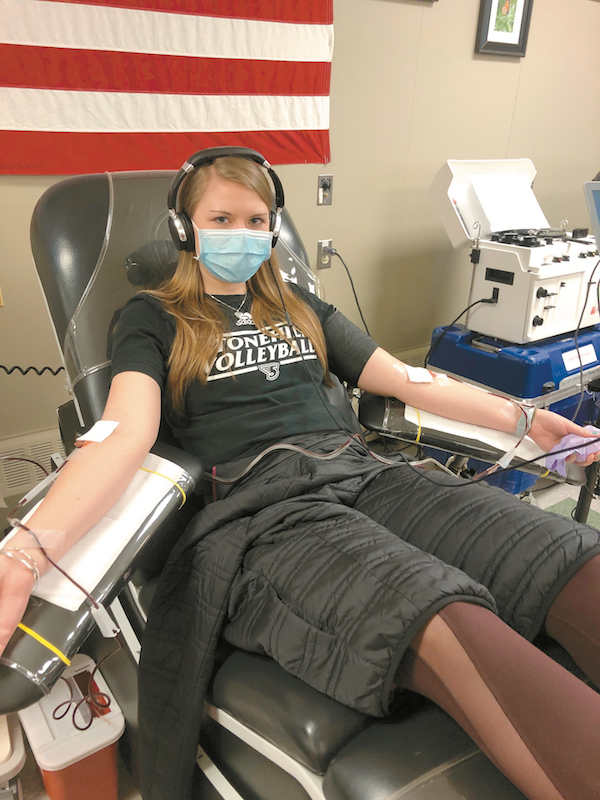After testing positive for COVID-19 in March, now recovered GHS alum Diana Kolb (GHS’17) became the first person in Maine to donate blood plasma to COVID-19 relief efforts on April 25.
Kolb had been studying abroad in Dublin, Ireland for her spring semester, but was sent home two months early in March due to the spread of the virus. She had experienced some of the symptoms of the virus the week leading up to her departure home to Maine, but only for a few days. As a precaution, she was tested immediately when she returned home.
“For me it wasn’t hard to get tested because I had been traveling in Europe in cities that had a high rate of the virus,” Kolb said. “I also have asthma, which puts you at a higher risk, so I was able to get in that day. But by the time I got the call that I tested positive, I had already pretty much recovered,” she said.
Her positive results came back over a week after she was tested, and luckily Kolb had already been feeling much better.
“Because I tested positive really early in Maine’s curve, there wasn’t really a clear answer on when I was going to be completely cleared as recovered, but I was told I had to go three full days with no symptoms after the 14-day quarantine.”
Kolb was symptom free following her quarantine and none of her family members ever showed symptoms. Upon recovery, Kolb used her experience as a way to help others fighting the virus.
“My mom had mentioned to me about blood plasma donations from recovered COVID patients, so I did research on the American Red Cross website which had specific information about the convalescent plasma,” she said.

Plasma-derived therapy has been used in the past to treat outbreaks of Ebola and the avian flu. As the COVID-19 pandemic persisted, the American Red Cross partnered with the FDA to collect convalescent plasma from those recovered from COVID-19. According to the American Red Cross, the convalescent plasma is known to have specific antibodies to COVID-19, making it a potentially lifesaving treatment for those with life threatening COVID-19 infections.
“I had been informed on the phone it was probably going to be a two-hour process, and I had to wear a face mask when going to my appointment,” Kolb said. “I had no idea I was the first person in Maine to do it, though. I thought other people had donated already.”
It wasn’t until Kolb arrived at her appointment that the nurse told her she was the first person to donate in the state. Kolb says she was totally fine being the ‘guinea pig’ in this process in Maine because to her that was better than sitting back and doing nothing.
“I think it’s a moral obligation for everyone, whether you had COVID-19 or not, to try and do something positive during the pandemic,” Kolb said. While estimated to take two hours, the whole process took just over an hour.
“The only way we are going to be able to solve this is by helping each other. For patients that are recovered from the virus, it is definitely a personal decision to donate plasma, but if you feel healthy enough, I think 60 minutes of your time is worth saving someone’s life.”


